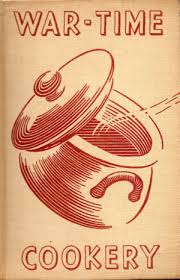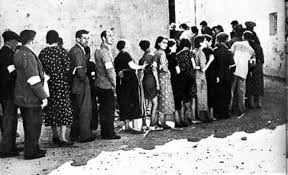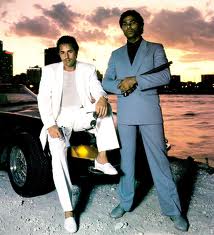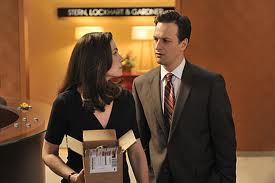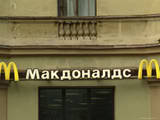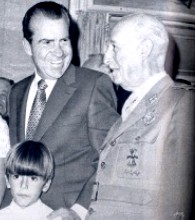My first destination in Texas, Houston, gave me an unprecedented taste of urban space built to an American model that has no replica in Europe. Sure, I had experienced the dismally unnourishing ratio of restaurants/bars-to-people in Downtown Washington but the capital was still redolent of some Olde Worlde ideal in the fuck-off size of its Neoclassical public buildings. Downtown Houston, on the other hand, looks like a really boring financial district on steroids: skyscrapers, huge parking lots, no people anywhere in the evening. Actually, very few cars in view, now that you ask. Just huge tall buildings made of glass and various metals where an evil mastermind is plotting a second financial meltdown that will magically line his pockets and leave everybody else destitute.
The size of buildings and the blood-chillingly sterile feel of a place, however, are per se of no importance whatsoever to somebody driving into a city with an empty stomach at 9pm because as I have discovered in this trip nothing is important when your stomach is really empty after a really long drive. To wit: Your mother had a triple-bypass and also needs your kidney? Not important. Ethan Hawke -coincidentally a Texan– makes eyes at you and throws the keys to his house on your lap after shoving his current wife under a car? Not important. North Korea has nuked South Korea and is imminently going to nuke Houston where you are really hungry right now? Not important. So, really, clever(ish) observations about architecture, so NOT important.
Why do you make clever(ish) observations about architecture then? You may ask. The answer is that, as per the Washington example, urban planning gives you vital information about your chances of getting to a restaurant ON FOOT without being committed to a mental asylum or mistaken for a Depression-Era hobo carrying his clothes in a stinky bundle hanging from a stick. And if you have been in a car for about 10 hours, the last thing you want to do upon arriving at your destination is drive anywhere. And in Houston we just wanted to walk the twenty-odd minutes to a Mexican restaurant calculated by Google Maps. Only deserted streets that look like the lair of a twisted financial mastermind are unsettling and make you ask cops if you are walking in the right direction and the cops –echoing a widespread American sentiment– go “I would not walk there” deterring you from continuing your quest. Unfortunately you have not realised yet that the emphasis is on WALK and not THERE. You see, walking is something that only toddlers and New Yorkers do in the US. Everyone else has experienced walking only vicariously in poorly lit scenes in slasher films, where a teenager walks into a wood to find out what the heavy breathing is all about, or a lonesome traveller walks into a gruesome-looking den where somebody is fine-tuning something that sounds suspiciously like a chainsaw. And they saw them at a drive-in.
So in Houston, unwisely, we decided to turn around and find somewhere local. Nothing fancy, we thought. Fast food will do. A reasonably stocked grocery store will suffice. A two-day-old sandwich kept cool we will not refuse. Our minds were open. Our pockets had enough dough. Our feet enough vim. We were in a sincere “it will do” mood. Unfortunately there was nothing for us to tolerate, condescend, or even grit our teeth to, in the knowledge that it would make a really good anecdote back home. Nothing. Nada. Or as they say in Texas –or at least an annoyingly cartoonish Southern voice in my head– “darn tooting nothing, no siree.”
We would walk for a block and spot a neon sign in the distance and say to each other, “There it is, that’s where I am going to eat an undetermined foodstuff that will do!” only to have our hopes crushed upon discovery that it was a bail bond outlet. Trust me, after eight potential eateries are revealed to be garishly-lit bail bond outlets you do not exactly lose your will to live, but let’s say that you seriously consider holding somebody at knife point to get some food, since clearly, bailing or being bailed is a much easier thing for a pedestrian to do than eating in Downtown Houston. I may be in a detention centre somewhere in Houston right now if it were not because there was nobody to mug for food in the street and I would be easily out on bail by now. (Ok, I don’t carry a weapon either, but I was planning on a devastatingly withering remark.)
That night we went to bed hungry and frustrated. The following morning, our charming hostess –an artist living in a loft with an exquisitely stocked fridge that we did not dare to raid– after offering us coffee and breakfast, revealed all we needed to know about eating in Houston. First of all, the quest for an eaterie in the area was doomed from the start, there are none. Walking is, of course, viewed with suspicion and/or alarm. A Houstonian would have hopped in his/her car and driven to the restaurant. Presumably, those without cars are too pauperous to eat in a restaurant, so no point asking about their chances of fine dining. (In the interest of full disclosure, I am obliged to say that you can cycle in Houston as there is a public bike system.You could also take public transport to a destination in the vicinity, I guess.) To sum up, we wanted to walk to a restaurant and that was wrong, wrong, wrong.
She then recommended a place for brunch she frequents called Baby Barnaby’s. We could drive there in about 20/25 minutes, wait for a while to get a table as it is really popular and enjoy an excellent meal in a bright welcoming space before heading to Austin. That is exactly what we did, driving to a pleasant suburb in the outskirts of Houston where you can find Baby Barnaby’s in a clapboard residential-looking house across from a bear bar sportig a rainbow flag cross-pollinated with the Texan flag. The brunch was perfectly satisfying, not only because the food was excellent but because there were other people sitting in the same room, strangers at that, something that seemed in short supply in Downtown Houston. It was well worth the wait in 40 plus degrees in the sweletering sun.

If you know anything about the States you may realise that there is something a bit odd about this, admittedly bland, finale with pancakes and eggs. You may not bat an eyelid at the lack of restaurants in an office area, but surely you will find both a cafe and a bear bar in a residential area bizarre. Well, you are not wrong to raise an eyebrow, and the reason for this unusual mixture of subarban houses and commercial buildings lies in the fact that Houston is a zoning-free city: this means that you can build anything you want anywhere you want, provided it will be financially sound to do so. In theory you could erect, say, a chemical factory next to a residential estate, although in practice, strong private covenants tend to be enforced to prevent that kind of development in residential areas.
Supply and demand dictate construction in Houston, which explains why the particular Downtown area we stayed in had nothing but bail bond outlets, since that is what is in particular demand in the area (I am presuming there is some sort of detention centre nearby). Wtih few residents and fewer visitors wandering the streets at nightime looking for food, marketplace logic dictates that there will be no eateries. Cue my aimless ravenous hunger.
Lack of zoning also explains the intriguing presence of the much appreciated cafe and its gay-friendly counterpart in a neighbourhood where elsewhere you will only find picket fences and lawn sprinklers. Two places that lifted the spirit of an area that may otherwise have been dampened by the conformity and self-satisfaction of your typical American suburb.

Here I take the liberty to momentarily go back to my hostess’s loft downtown: a beautiful space filled with her art sporting a well-dressed library. During this trip I fancied myself in possession of Holmes-like powers of deduction when it came to various hosts’ life styles. A sure way to find out whether you can have a decent conversation with a stranger is to peruse their shelves: to see a beloved book or two on a stranger’s shelf is heartening and bodes well for the quality of the conversation you may enjoy. I was pleased to find out that our hostess had several books that were also sitting on my shelves in Dublin: although I had not met her yet (she had left instructions on how to get into the house and make ourselves at home) she was clearly talented and had excellent taste. My vanity directed me to the harmonious correspondence of art and literature in the loft and to the potential reflection of similar qualities in my character as the possessor of some of the same volumes. Alas, on the top shelf, I also found a book by Milton Friedman (of the Chicago School of Economics that so perniciously shaped the economy in the last few decades of deregulation) and a well-thumbed copy of Ayn Rand’s Atlas Shrugged (a book that has probably fed in equal measure adolescent fantasies of self-sufficiency and free market zealotry.)
It could, of course, be that she had those books on her shelves because she was well-read and wanted to keep her (literary and political) friends close and her enemies closer, but somehow I doubt it. They were displayed on the top shelves at eye-level for easy reach when standing up and Atlas Shrugged was lovingly worn out, like a teddy who has lost an eye because of a child’s too enthusiastic and frequent effusions.
When I finally met my hostess she was charming, intelligent, helpful and warm. I did not mention her books nor enquire about her politics. We did converse about education and, of course, urban planning, but we made vague noises in the general direction of good will and concern that even a seasoned Egyptologist may have found hard to decipher. The secret of harmony when conversing with strangers is not to avoid politics (which is impossible and also moronic) but to speak about problems, never about solutions. There are very few people out there who will profess a desire to see education standards decline, hordes of famished people in the streets, and environmental meltdown, but many will disagree on how to achieve desirable outcomes in those fields.
We did not broach our political leanings but I suspect that hers were a reflection of the mixture of free market endorsement and social tolerance that was evident in my limited but illuminating gastronomic adventures in Houston. On her shelves Rand rubbed elbows with Bedchel, Friedman with Spiegelman. On the streets of Houston, the foodless sterility of financial might with the unexpected culinary bounty of a socially inclusive suburb.

